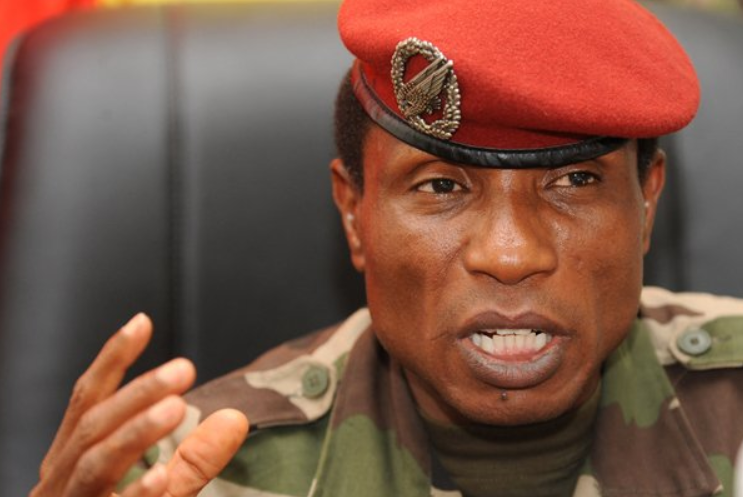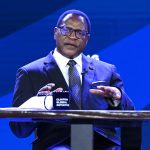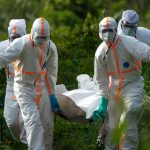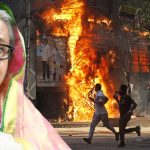
Guinea’s former dictator Moussa Dadis Camara denied responsibility when he took the stand Monday at a trial of officials implicated in a 2009 massacre.
Camara and 10 other former military and government officials are accused over the killing of 156 people and the rape of at least 109 women by pro-junta forces at a political rally in a Conakry stadium in September 2009.
They face charges ranging from murder to sexual violence, kidnappings, arson and looting. Camara himself is charged with “personal criminal responsibility and command responsibility”.
Presiding judge Ibrahima Sory Tounkara reminded Camara of the charges the court had brought against him.
“And to the question to know whether you recognise them, you replied in the negative,” Tounkara said.
“Absolutely,” Camara replied before launching into a long monologue evoking philosophers Heraclitus and Immanuel Kant along with the Egyptian pharaohs.
Camara’s deposition was a key moment survivors and relatives of the victims had been waiting for at the trial that opened September 28, 13 years to the day after the massacre.
Proceedings in the trial were postponed until today from a week ago after Camara said he was too ill to give testimony.
The lawyer for Aboubacar Sidiki Diakite, a former aide de camp to Camara who has accused him of preparing the massacre, accused Guinea’s ex-leader of faking his illness.
One of Camara’s lawyers said his client had been suffering from an exhausting bout of malaria for weeks and that he had the “absolute right” to rest.
Camara, at the time an unknown army captain, seized power in December 2008 shortly after the death of Guinea’s second post-independence president, General Lansana Conte, who had ruled for 24 years.
In December 2009, Camara was wounded in the head in an attempted assassination and headed to Morocco for medical treatment.
He fled into exile in Burkina Faso, where he was indicted in July 2015 by Guinean magistrates for his alleged role in the stadium massacre.
The former strongman was detained on September 27, a day before the long-awaited trial began in a purpose-built court in the capital Conakry.
mb-lc/imm
© Agence France-Presse






